South African scientists – notably the team headed by Professor Tulio de Oliveira – were thrown into the global spotlight through their pivotal role in detecting and monitoring the emergence of new variants of SARS-CoV-2 – the Beta variant in 2020 and Omicron in 2021. De Oliveira is now at the University of Stellenbosch, but for much of the pandemic headed the KwaZulu-Natal Research Innovation and Sequencing Platform (KRISP).
The country’s advanced genomic sequencing capabilities and proactive surveillance efforts allowed for the early identification of the variants and the discoveries played a crucial role in alerting the global scientific community to the potential for viral mutations and the need for enhanced monitoring.
Now, scientists worldwide believe it is critical to continue investing in genomics to support disease control in public health in South Africa and the broader continent.
What is genomics?
The World Health Organization defines genomic surveillance as “the process of constantly monitoring pathogens and analysing their genetic similarities and differences”. It is done through a method known as whole genome sequencing, which determines the entire genetic make-up of specific organisms or cell types. This method is also able to detect changes in areas of genomes, which can help scientists to establish how specific diseases form. The results of genomic sequencing can also be used in diagnosing and treating diseases.
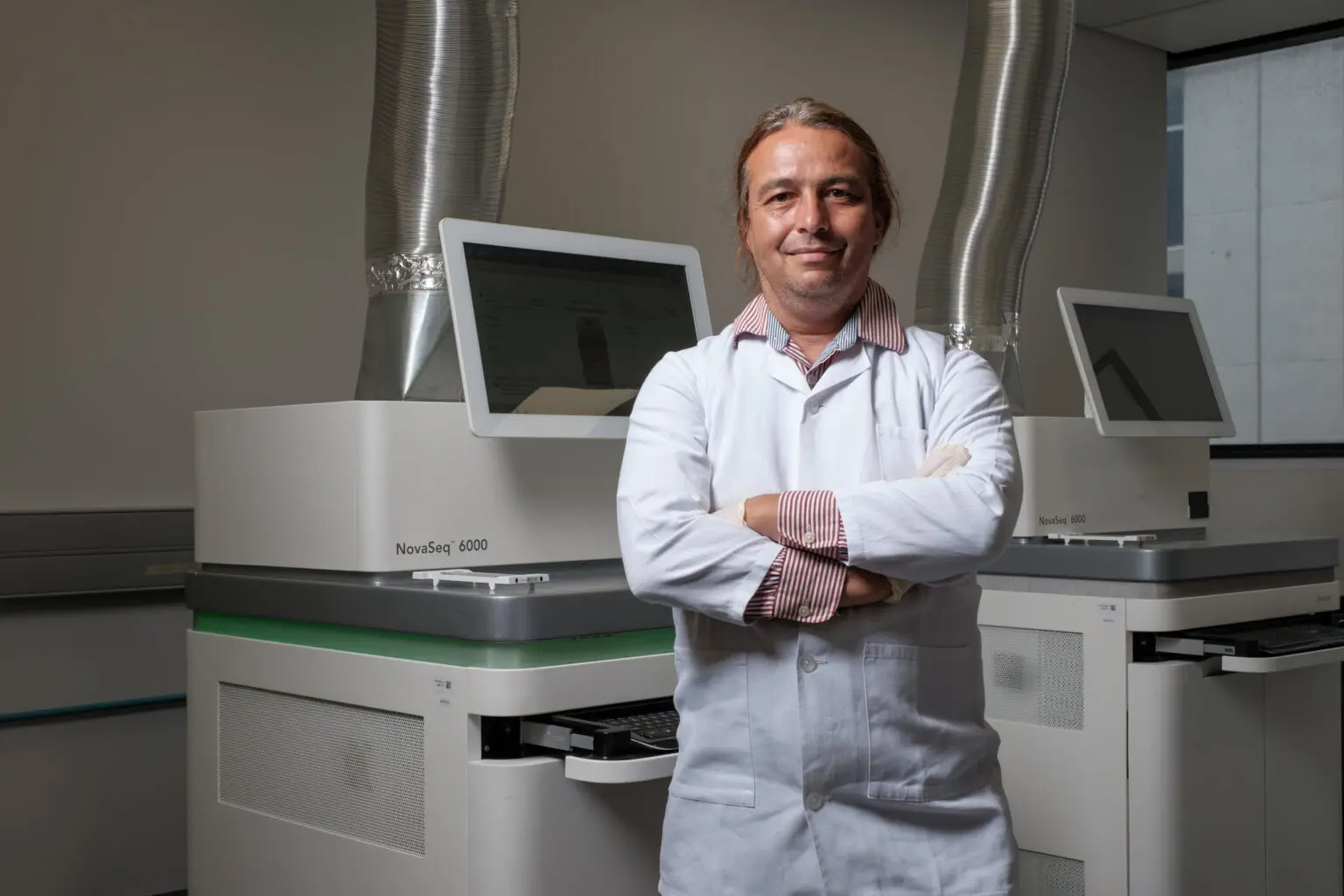 South African bioinformatics expert Professor Tulio de Oliveira has been honoured with Time Magazine’s 100 most influential people award. (Photo: Supplied)
South African bioinformatics expert Professor Tulio de Oliveira has been honoured with Time Magazine’s 100 most influential people award. (Photo: Supplied)
Genomic sequencing enables scientists to read the DNA and RNA of pathogens and understand what they are and how they spread between people – and to develop vaccines and other measures to deal with them.
The US Centers for Disease Control explains: “All organisms (bacteria, vegetable, mammal) have a unique genetic code, or genome that is composed of nucleotide bases (A, T, C and G). If you know the sequence of the bases in an organism, you have identified its unique DNA fingerprint, or pattern. Determining the order of bases is called sequencing. Whole genome sequencing is a laboratory procedure that determines the order of bases in the genome of an organism in one process.
“Scientists conduct whole genome sequencing by following these four main steps:
- DNA shearing: Scientists begin by using molecular scissors to cut the DNA, which is composed of millions of bases (As, Cs, Ts and Gs), into pieces that are small enough for the sequencing machine to read;
- DNA bar-coding: Scientists add small pieces of DNA tags, or bar codes, to identify which piece of sheared DNA belongs to which bacteria. This is similar to how a bar code identifies a product at a grocery store;
- DNA sequencing: The bar-coded DNA from multiple bacteria is combined and put in a DNA sequencer. The sequencer identifies the As, Cs, Ts and Gs, or bases, that make up each bacterial sequence. The sequencer uses the bar code to keep track of which bases belong to which bacteria; and
- Data analysis: Scientists use computer analysis tools to compare sequences from multiple bacteria and identify differences. The number of differences can tell the scientists how closely related the bacteria are, and how likely it is that they are part of the same outbreak.”
Time to expand
At a recent conference held at Stellenbosch University’s new state-of-the-art Biomedical Research Institute, De Oliveira stressed that African and other experts should build on their success in Covid-19 genomics to expand to other pathogens such as influenza, H5N1 and climate-amplified pathogens.
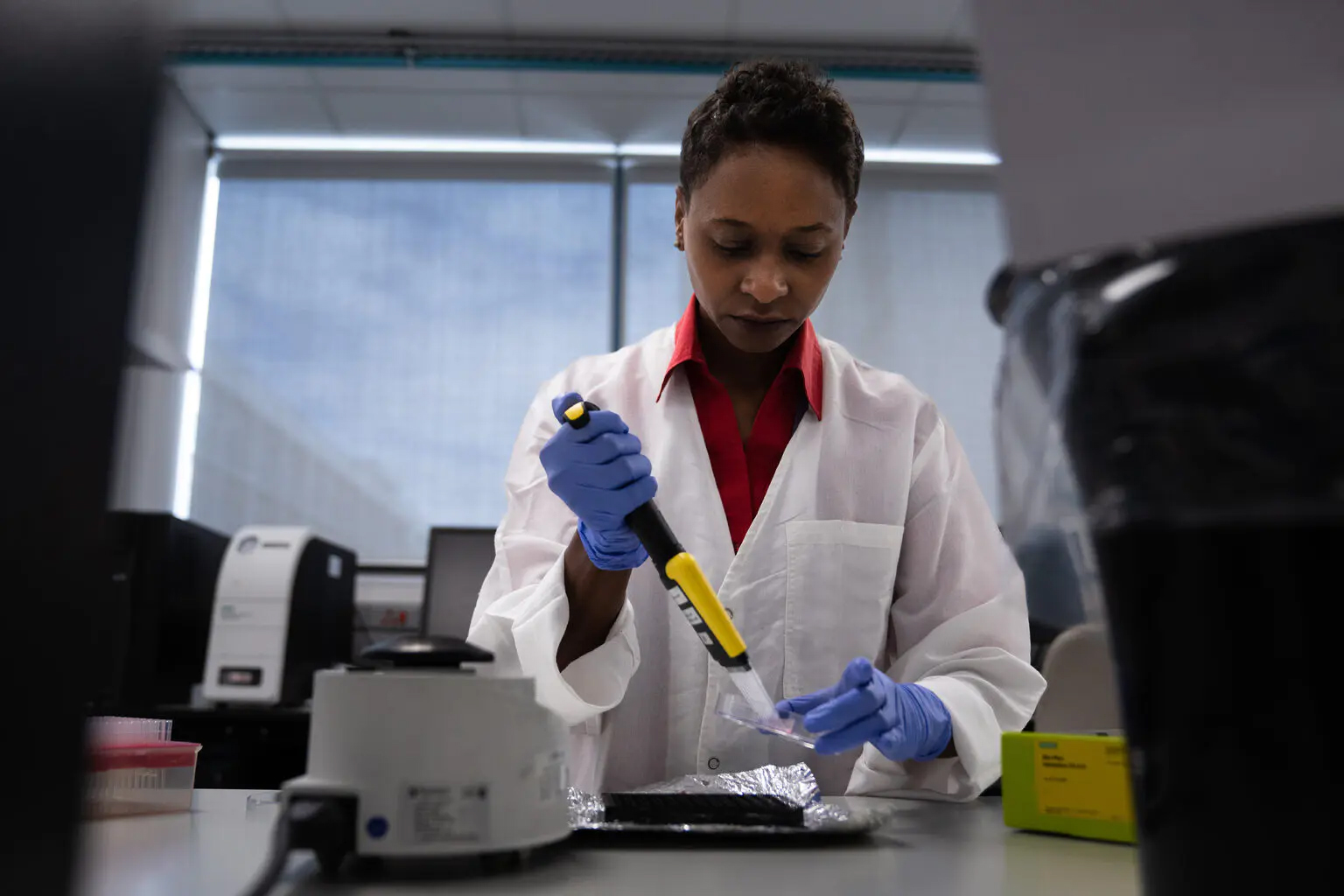 During the Covid-19 pandemic we saw the remarkable power of genomics in helping us keep track of new viral variants. (Photo: Damien Schumann)
During the Covid-19 pandemic we saw the remarkable power of genomics in helping us keep track of new viral variants. (Photo: Damien Schumann)
John Sillitoe, the head of surveillance operations at the Wellcome Sanger Institute in the UK, agreed.
“It is important now to focus on endemic diseases so we can improve our understanding and control of endemic diseases. We should also be looking at TB, particularly with the increased prevalence in drug resistance and reduced response to drugs. For other African countries, malaria should be a key focus area. We know that drug resistance is spreading into Africa from South East Asia and understanding the right combination of drugs to use is something that is easily identifiable through genomic surveillance.”
But surveillance is also about being ready for the next pandemic.
“There’s that classic line that ‘diseases take no notice of national borders’,” Sillitoe said in an interview. “So, it is really important that we can get as wide a picture of surveillance as possible to identify something new emerging as soon as possible.”
Read more in Daily Maverick: Investing in a Pan-African genome initiative would provide great returns for humanity
Marco Salemi, a professor of experimental pathology in the Department of Pathology, Immunology and Laboratory Medicine at the University of Florida College of Medicine, said Africa and the world need to be “proactive rather than reactive” in the battle against future epidemics. He said the world is currently focused on monitoring the Covid-19 pandemic. “But we forget this is this huge reservoir of pathogens out there which we know so little about and which can become more and more of a threat, especially because of climate change – so we need to understand more about all these pathogens in the wild, in animals, and their potential to jump to humans, especially with the rate of globalisation on the planet… Events of zoonotic transmissions will become more and more frequent. We need to face it.”
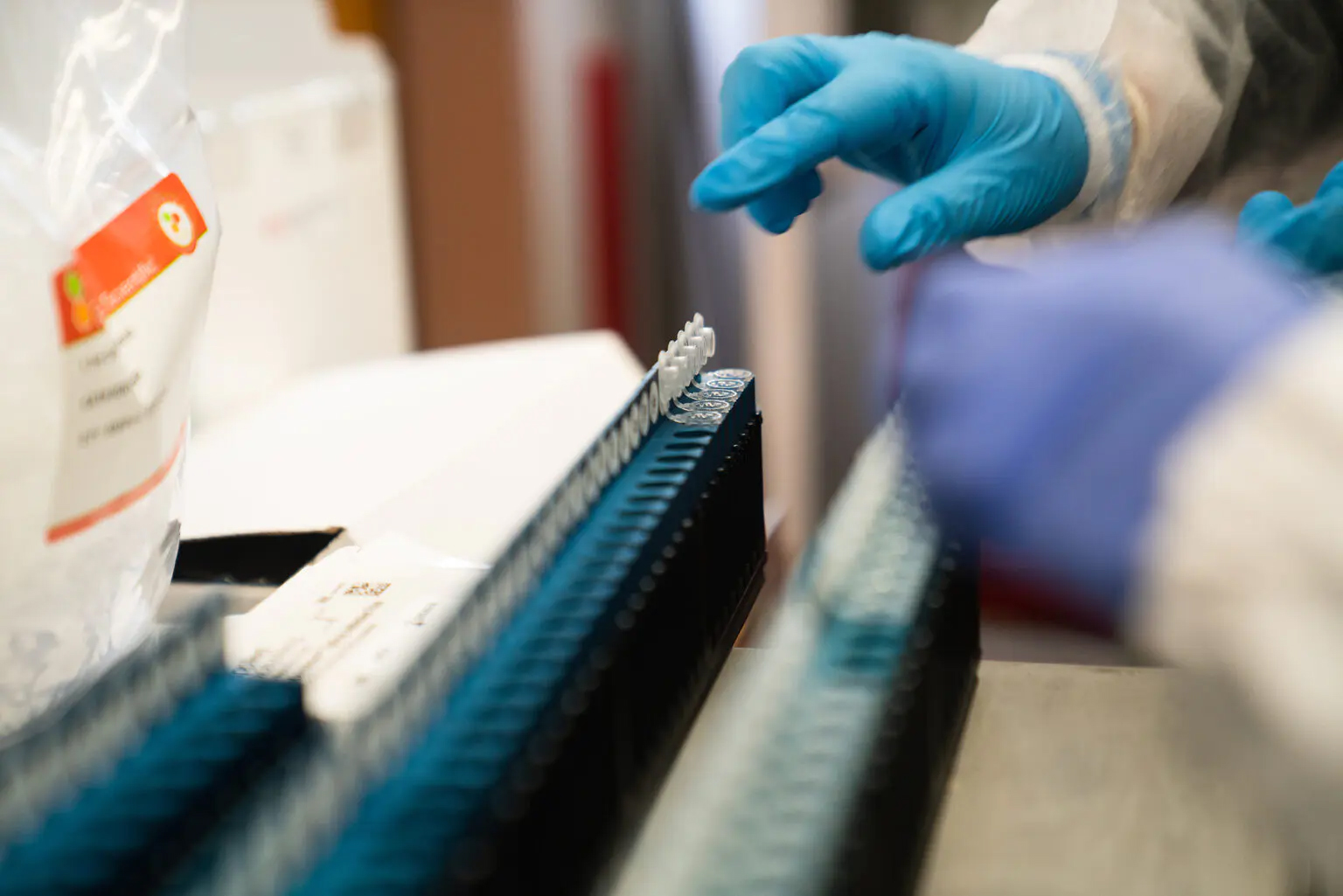 Professor Tulio de Oliveira says African and other experts should build on their success in Covid-19 genomics to expand to other pathogens such as influenza, H5N1 and climate-amplified pathogens. (Photo: Damien Schumann)
Professor Tulio de Oliveira says African and other experts should build on their success in Covid-19 genomics to expand to other pathogens such as influenza, H5N1 and climate-amplified pathogens. (Photo: Damien Schumann)
Building capacity
De Oliveira is of the view that Africa could, in the next few years, potentially “leapfrog over the rest of the world” in genomic surveillance, thanks to its success in Covid-19 genomics and its experience in using genomics to monitor other pathogens over the past 20 years.
We won’t be starting from scratch.
The use of genomics in infectious diseases started in the mid-Eighties during the HIV epidemic, when scientists realised HIV was a complex virus that existed in many different subtypes. Scientists around the world started using genomic tools to sequence the HIV virus, track its origin and trace the way the virus disseminated.
Genomics has, however, changed dramatically since the 1980s.
“There have been many attempts… to use genomics for public health purposes, but the key factor that was always missing was the ability to generate DNA sequencing in real-time,” said Salemi. “Real-time means there is an epidemic, with cases happening today – and we need to generate sequences within one or two days and then to analyse the genomic data and then to have actionable information that can be immediately transmitted to the public health authorities so that they can act within a few days.”
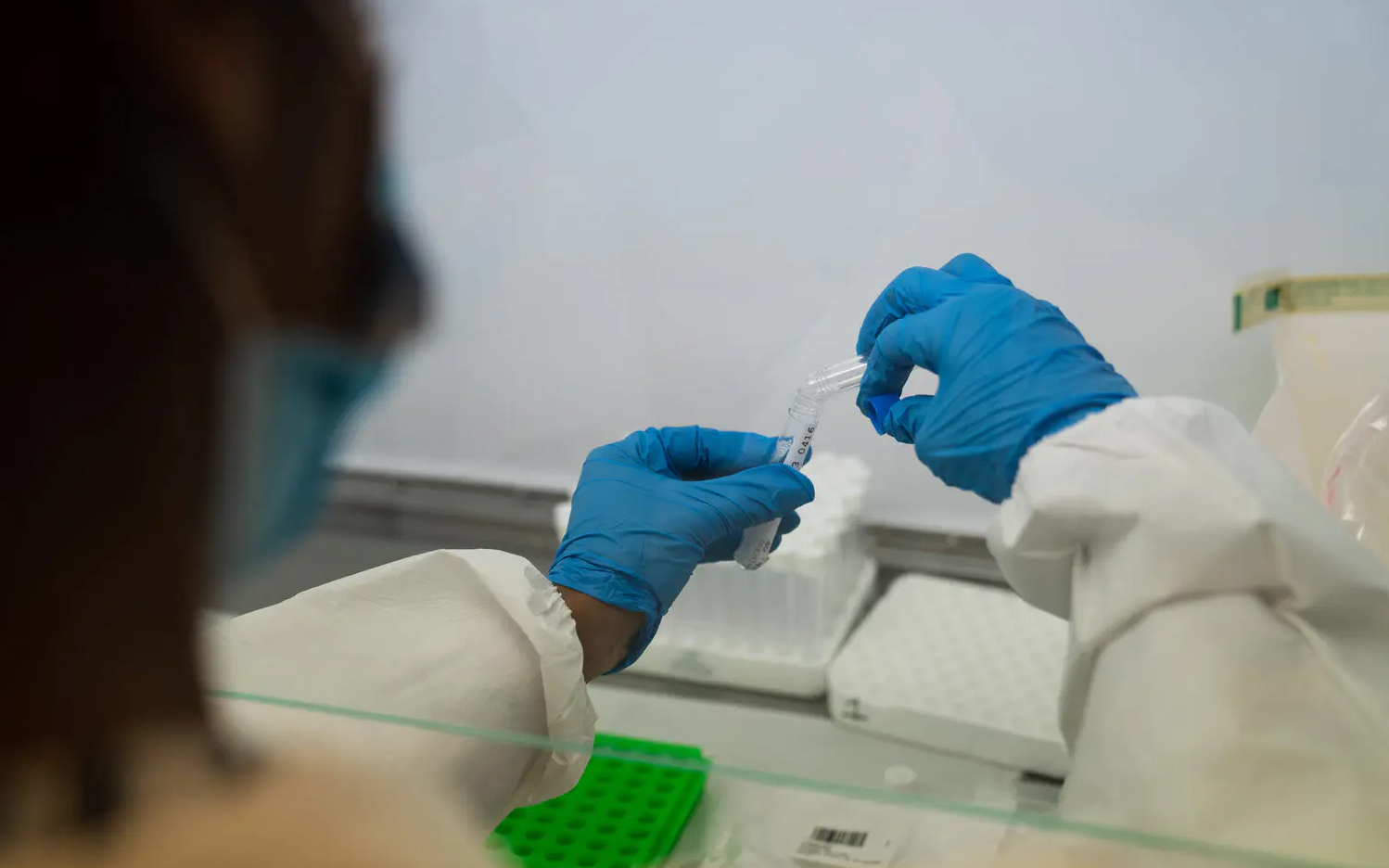 Genomic surveillance is also about preparing for the next pandemic. (Photo: Damien Schumann)
Genomic surveillance is also about preparing for the next pandemic. (Photo: Damien Schumann)
“Now the technological and computational limitations of the past few years have been overcome, and, as was clearly shown during the Covid-19 pandemic, we have machines that can generate literally thousands of sequences, like coronavirus sequences, in less than one day, or even within a few hours. At the same time, we have high-performance computer clusters, and super-calculators that are capable of analysing this data in a very short time,” he said.
These technical advances would, of course, be of little value without people to use them and develop them further.
All the investments we have made in genomic surveillance for Covid can now be leveraged and advanced to other areas of genomics in Africa.
“Investment has been made on the continent in infectious disease surveillance and genomics surveillance specifically, and so we have lots of experts on the continent who know a lot about infectious diseases and how viruses work, and why it’s important to look at the genomics to trace when there is going to be a new outbreak,” says Professor Zané Lombard, principal medical scientist in the Division of Human Genetics at the University of the Witwatersrand. “South Africa’s role during Covid-19 showcased what can happen quickly and effectively for public health interventions if you have the right experts with the right platform and expertise and infrastructure in place to do that kind of surveillance.”
De Oliveira and his team have worked closely with the Africa Centres for Disease Control and Prevention (Africa CDC) to scale genomic surveillance on the continent and have actively collaborated with other African countries to share expertise, resources and genetic data in a bid to foster a continent-wide approach to genomic surveillance.
They have also helped set up large genomics facilities in Zimbabwe, Mozambique and Botswana.
Read more in Daily Maverick: A glimpse into the unknown – human genome gets a huge update
The Africa CDC, through its Pathogen Genomics Initiative (Africa PGI) has, for the past few years, been building a continent-wide genomic disease surveillance network. In 2019, when the PGI started its work, only seven of the African Union’s 55 member states had public health institutions with the equipment and staff to do genetic sequencing. Today, 31 African nations are able to do genetic sequencing for surveillance of Covid, malaria, cholera, Ebola and other diseases.
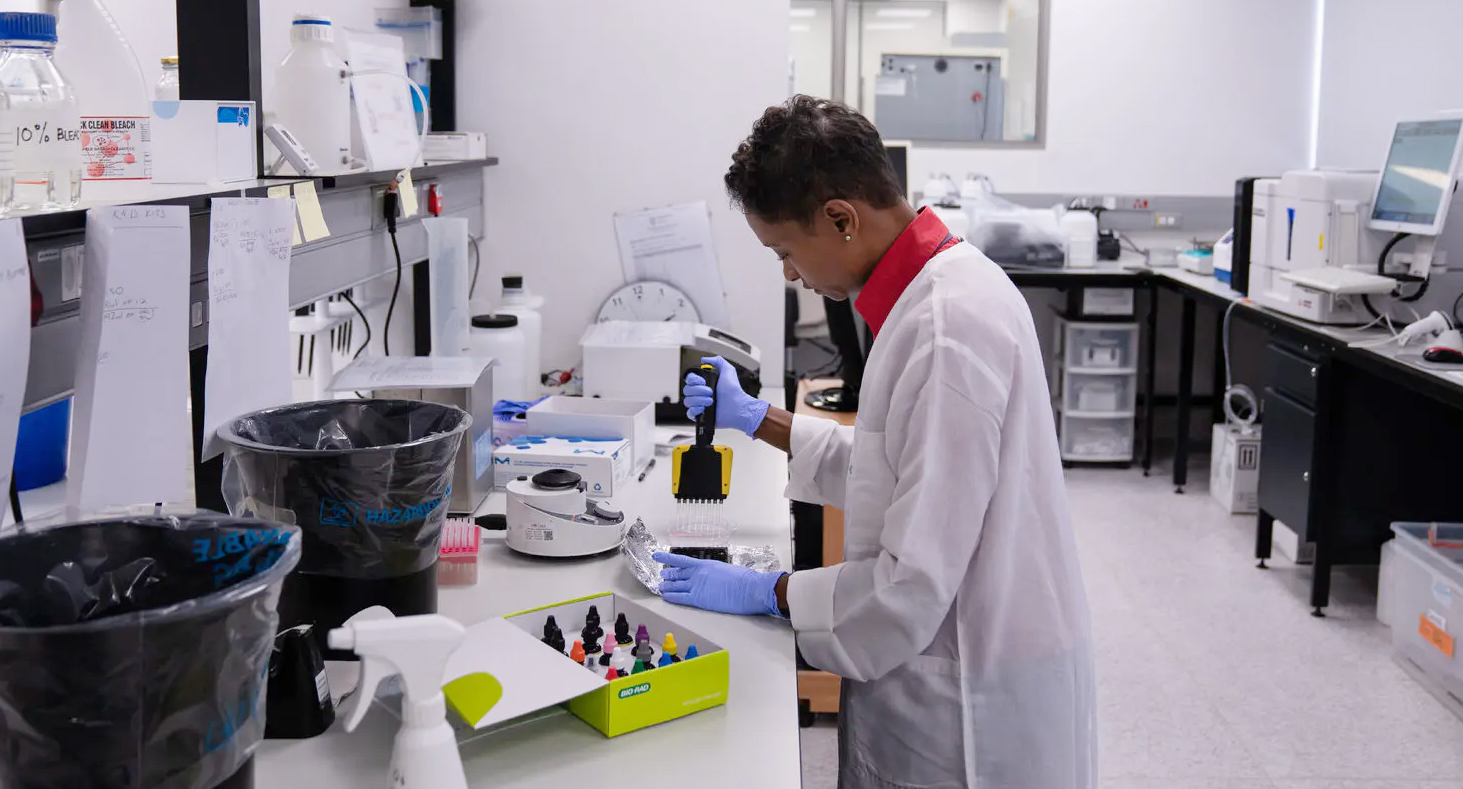 (Photo: Damien Schumann)
(Photo: Damien Schumann)
De Oliveira said the continent’s experience in genomic surveillance of pathogens in Africa evolved to “unheard-of” levels during Covid. “We’ve been trying to advance genomic surveillance in Africa for the past two decades, and when the pandemic came we had the right expertise to deal with viruses and respiratory pathogens such as tuberculosis, so we were able to pivot for SARS-CoV-2. In the end, South Africa and Africa became the example to follow for the whole world.
“All the investments we have made in genomic surveillance for Covid can now be leveraged and advanced to other areas of genomics in Africa… including for rare diseases, for cancer diagnostics and human genomics. Finally, we have the tools and the equipment, as well as the support, to do advanced genomics in Africa, as we have dreamt of doing for the last 20 years.”
What it means in practical terms
Asked what it means, practically, to build capacity for genomics research, Lombard said one aspect is the establishment of strong laboratories. “Historically, if infrastructure was not available locally, researchers would partner with international labs and send their samples to have their sequencing done there. The problem with that was that expertise in using [that] technique was not being built locally,” she said. “It is really important to train the right people who know how to do the laboratory experiments but also to interpret the data correctly.
“It’s not only about building the infrastructure in the labs, but also about training the individuals and making sure there are job opportunities locally for them,” she said.
Turning to the machines used in genomics, Lombard said: “The most popular machine these days is called a next-generation sequencer. These can read the whole DNA sequence of a virus.”
Salemi added: “Some of these sequencers are very large and some are even little portable boxes. Some can sequence thousands of samples at a time, while others are capable of sequencing a few dozen samples at a time. The samples, depending on the virus (or pathogen) being tested for, are taken from blood samples, nasal swabs or sputum from patients, from faeces, urine or from the skin.
I find it naïve and sad when I hear politicians talking about building top-of-the-line laboratories, when they really need to start building human capacity.
“The BMRI (at Stellenbosch University) – which has the largest sample storage capacity in the southern hemisphere – can store five million samples at minus 80 degrees. If someone wants to build a lab that includes top-of-the-line computational capacity, it will cost anything from $40-million (more than R700-million), but to start a small operation to do a few hundred sequences of a virus every week, $100,000 to $200,000 (roughly R17-million to R34-million) is enough, which has been done in many different African countries during the pandemic.”
Training is key
While all the scientists interviewed agreed that laboratories are important in building capacity for genomics research, they stressed that what is really needed is to train more individuals.
“More people need to be trained in genomics but also in bioinformatics, which is a really important component of this work. The technology component is becoming very smart and automated, but the data being generated is becoming more and more complex, with bigger data sets. Dealing with these,” Lombard said, “requires special data analysis skills and bioinformatics skills. The field of bioinformatics will need investment so that we can deal with the deluge of data that will come out.”
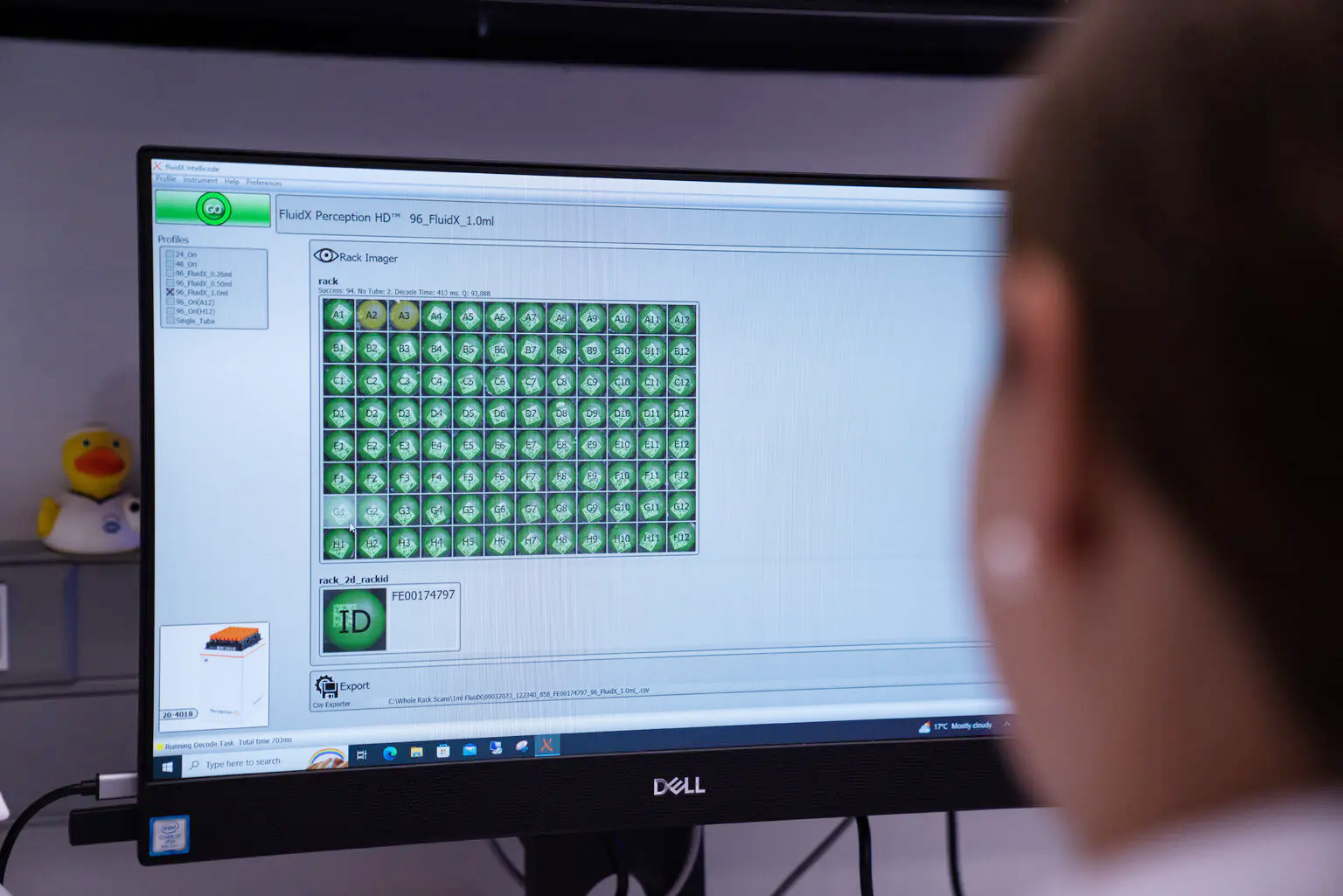 The Africa CDC, through its Pathogen Genomics Initiative, has, for the past few years, been building a continent-wide genomic disease surveillance network. (Photo: Damien Schumann)
The Africa CDC, through its Pathogen Genomics Initiative, has, for the past few years, been building a continent-wide genomic disease surveillance network. (Photo: Damien Schumann)
She said South African and other African universities are taking this need for skills seriously, with many initiatives to offer undergraduate and postgraduate training programmes in these areas.
Salemi agreed: “The most important part of building capacity is human training. I find it naïve and sad when I hear politicians talking about building top-of-the-line laboratories, when they really need to start building human capacity. Africa is an amazing reservoir (from which to build these skills) because 50% of the continent [are] people who are less than 30 years old. There are about 27 excellent laboratories all over Africa. We need to start creating a strong next generation of scientists.”
In support of this, De Oliveira is trying to raise $100-million to implement real-time genomic research to enable Africa to respond to new epidemics.
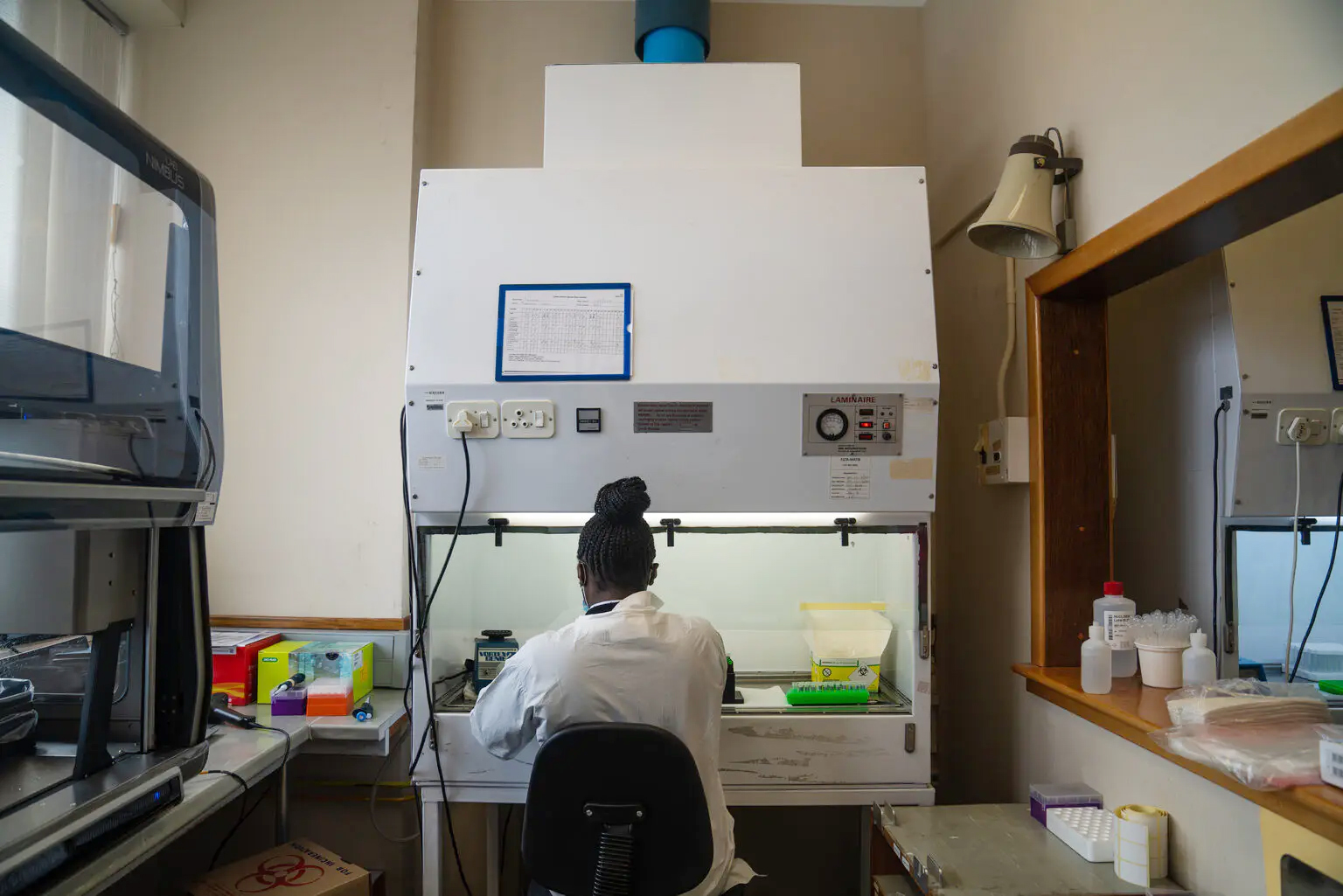 Experts stress the importance of training the right people who know how to do laboratory experiments but also to interpret the data correctly. (Photo: Damien Schumann)
Experts stress the importance of training the right people who know how to do laboratory experiments but also to interpret the data correctly. (Photo: Damien Schumann)
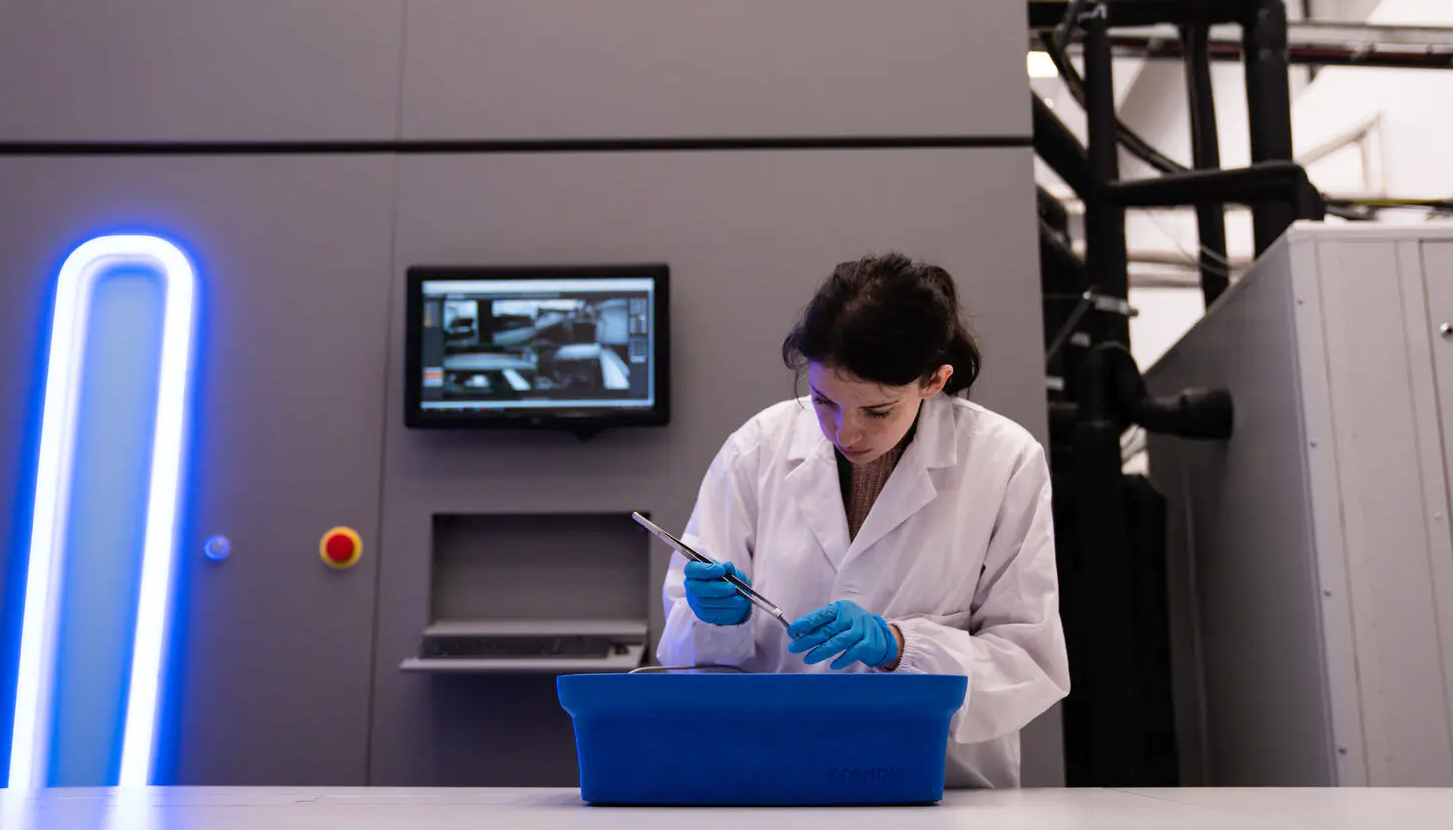 Professor Tulio de Oliveira is trying to raise $100-million to implement real-time genomic research to enable the African continent to respond to new epidemics. (Photo: Damien Schumann)
Professor Tulio de Oliveira is trying to raise $100-million to implement real-time genomic research to enable the African continent to respond to new epidemics. (Photo: Damien Schumann)
He said that during Covid the Network for Genomics Surveillance was founded and funded by the Department of Science and Innovation and the South African Medical Research Council. This funding was until 2021.
The Centre for Epidemic Response and Innovation, which is led by de Oliveira and forms part of the BMRI, is funded by the Africa CDC, the World Health Organization, the Rockefeller Foundation, and the Elma Foundation. These funders support the work in South Africa and in other African countries, as well as the South African government. The BMRI was mostly funded by Stellenbosch University to the tune of R900-million, while the Department of Higher Education provided about R300-million. CERI occupies one floor of the BMRI.
In De Oliveira’s words: “This truly is the genome era for Africa.” DM
Disclosure: Segar has done a range of stories for the University of Stellenbosch’s FMHS as well as for the Corporate Affairs Division, and covered the Genomics Symposium at the new BMRI recently.
This article was published by Spotlight – health journalism in the public interest.





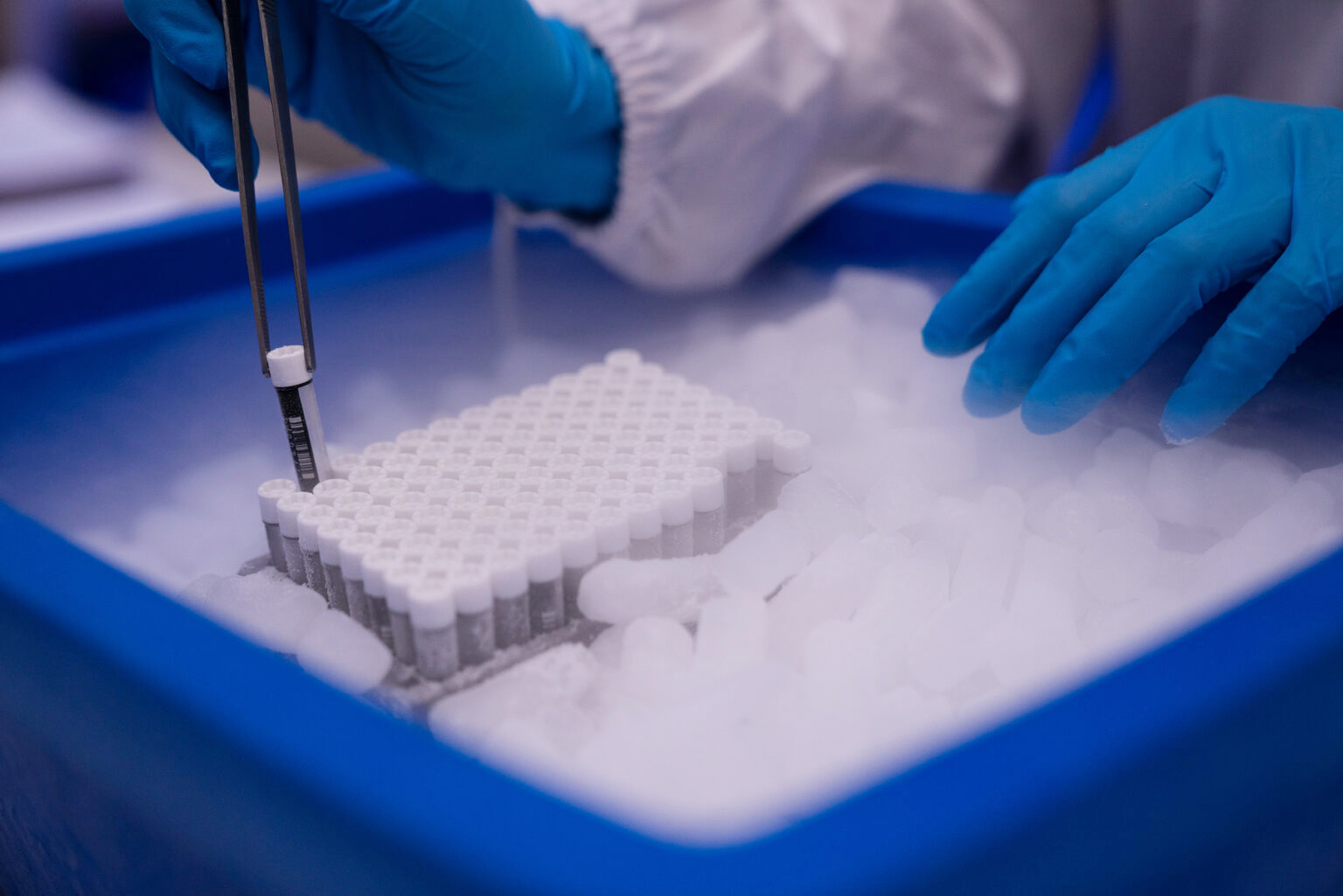 Professor Tulio de Oliveira is trying to raise $100-million to implement real-time genomic research to enable the African continent to respond to new epidemics. (Photo: Damien Schumann)
Professor Tulio de Oliveira is trying to raise $100-million to implement real-time genomic research to enable the African continent to respond to new epidemics. (Photo: Damien Schumann)